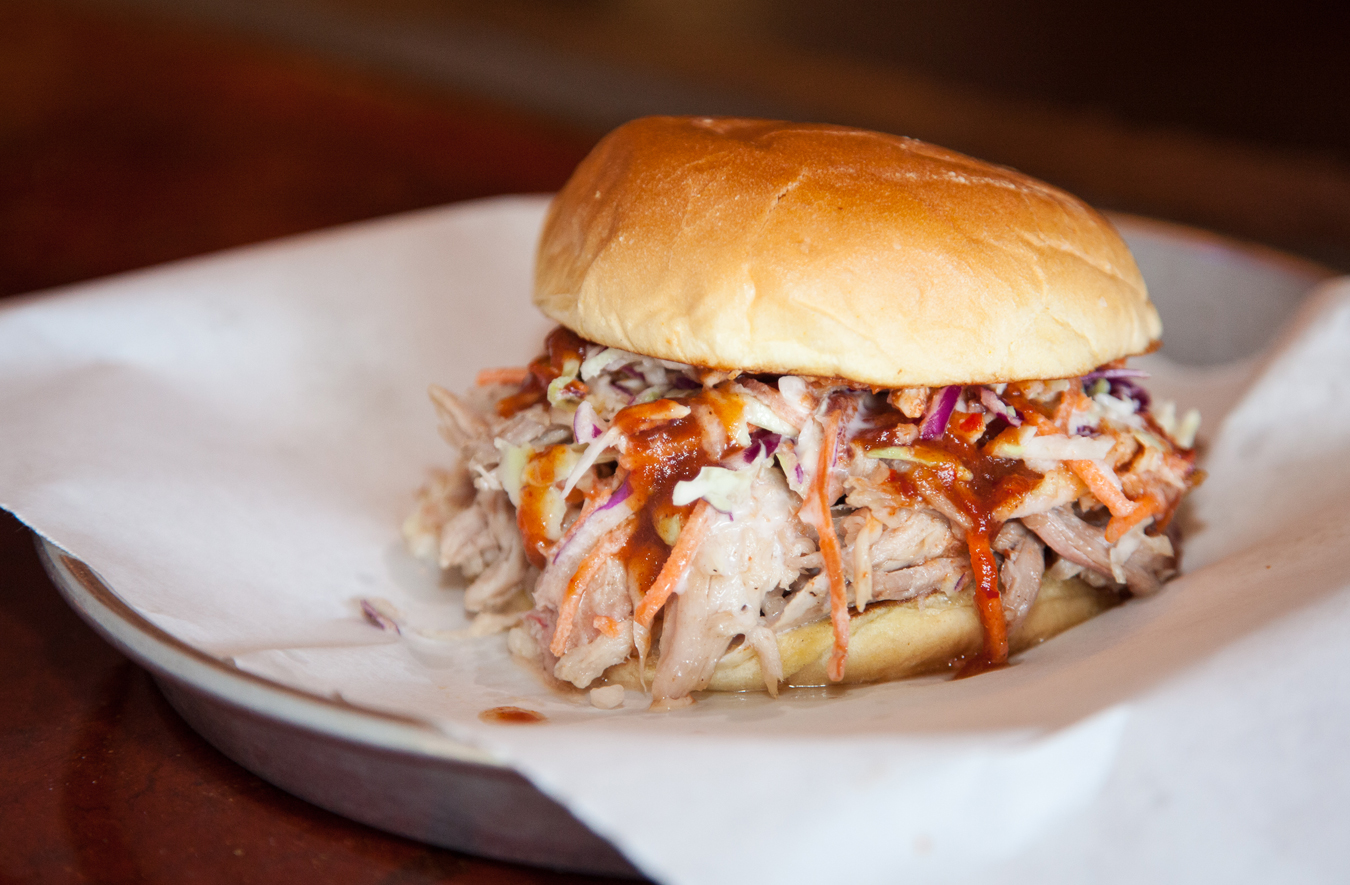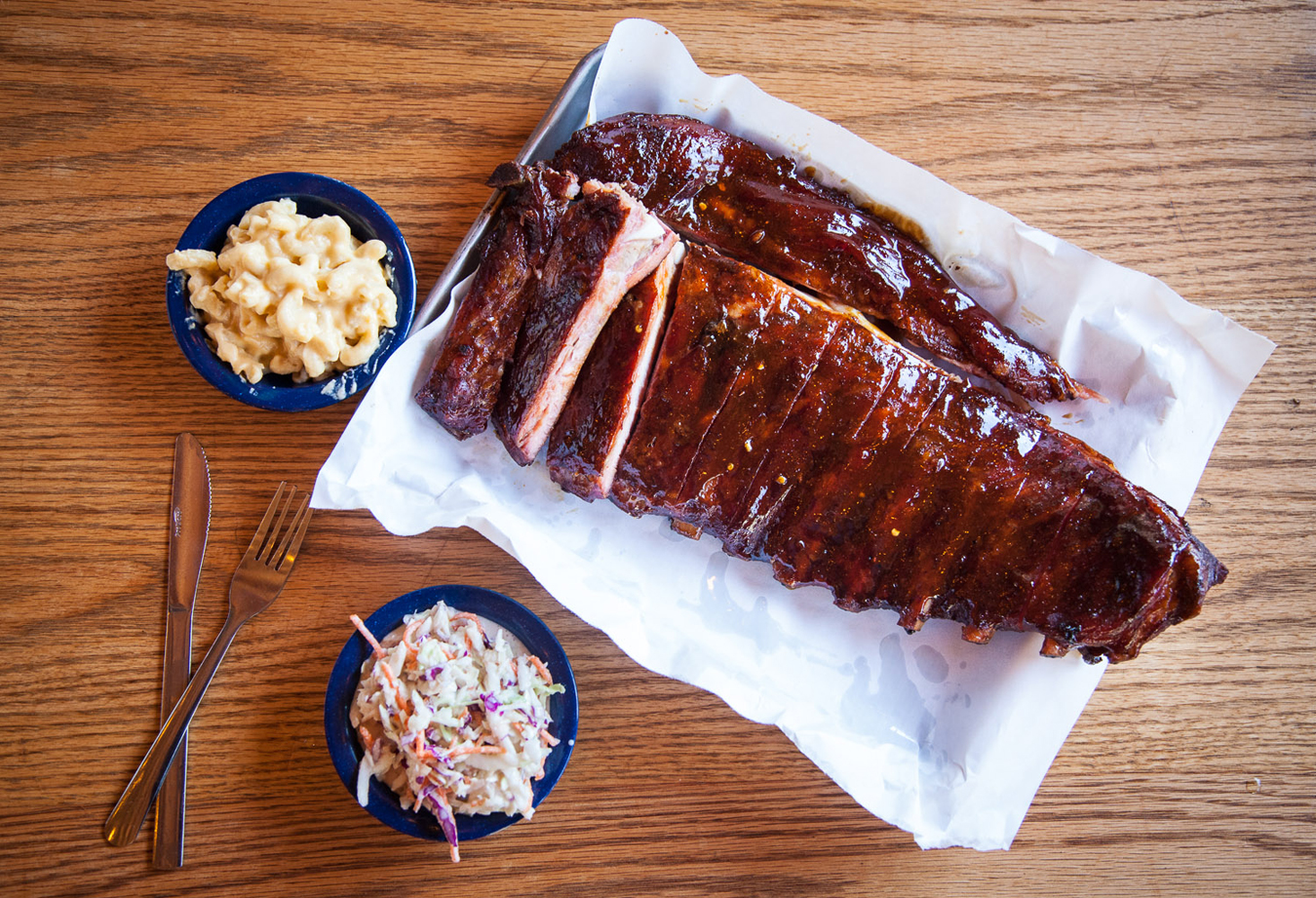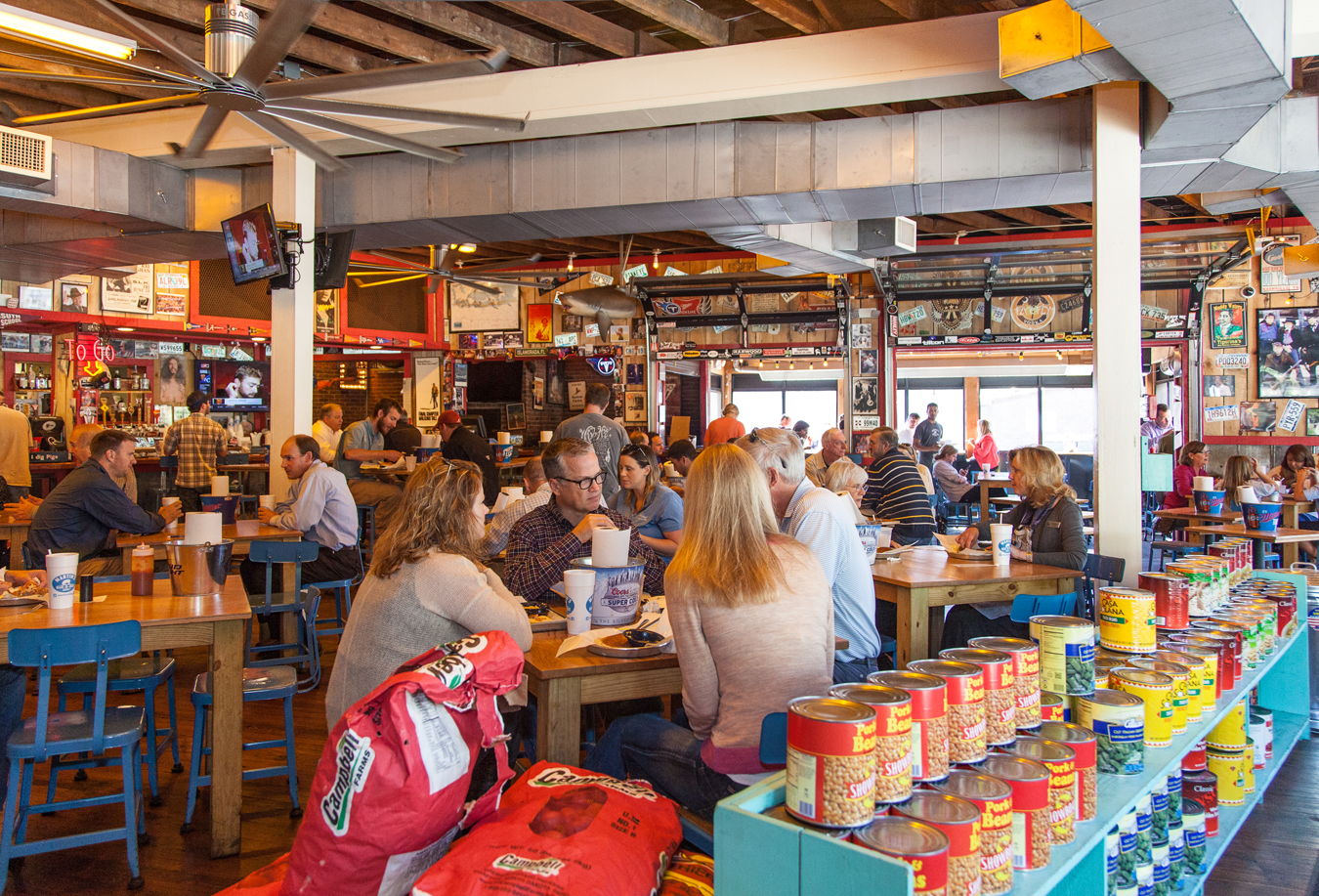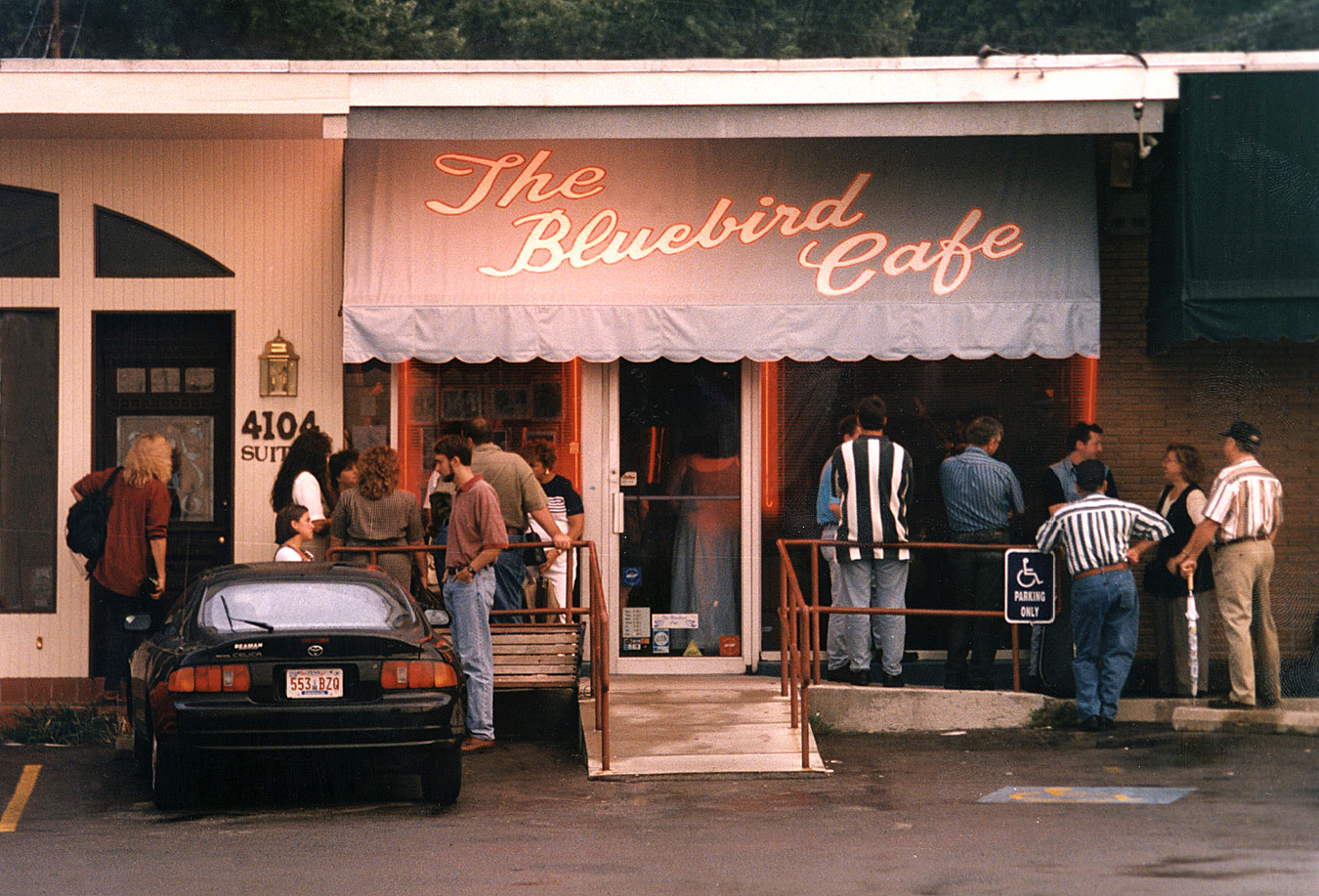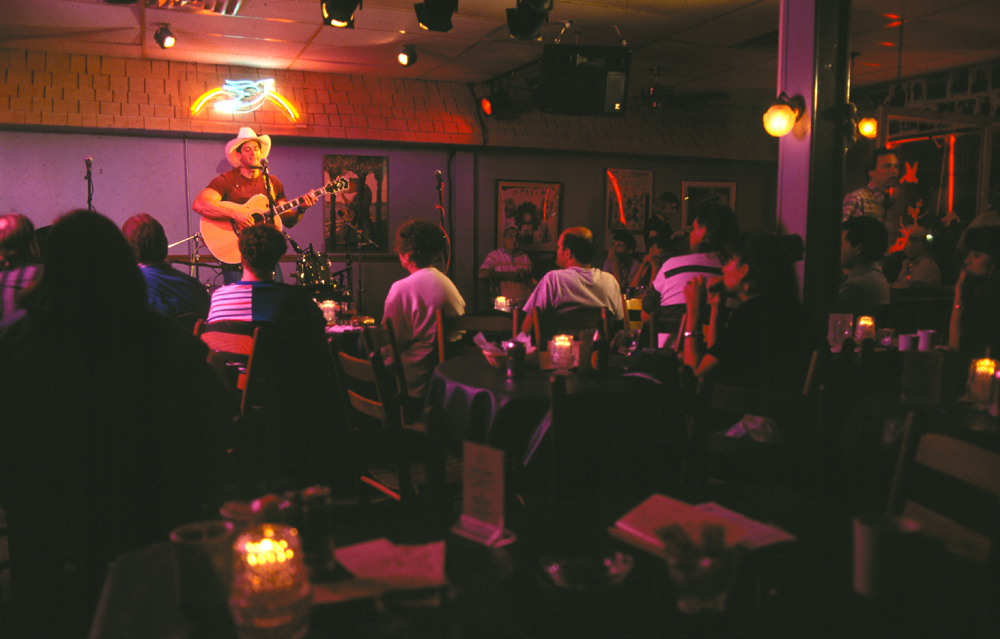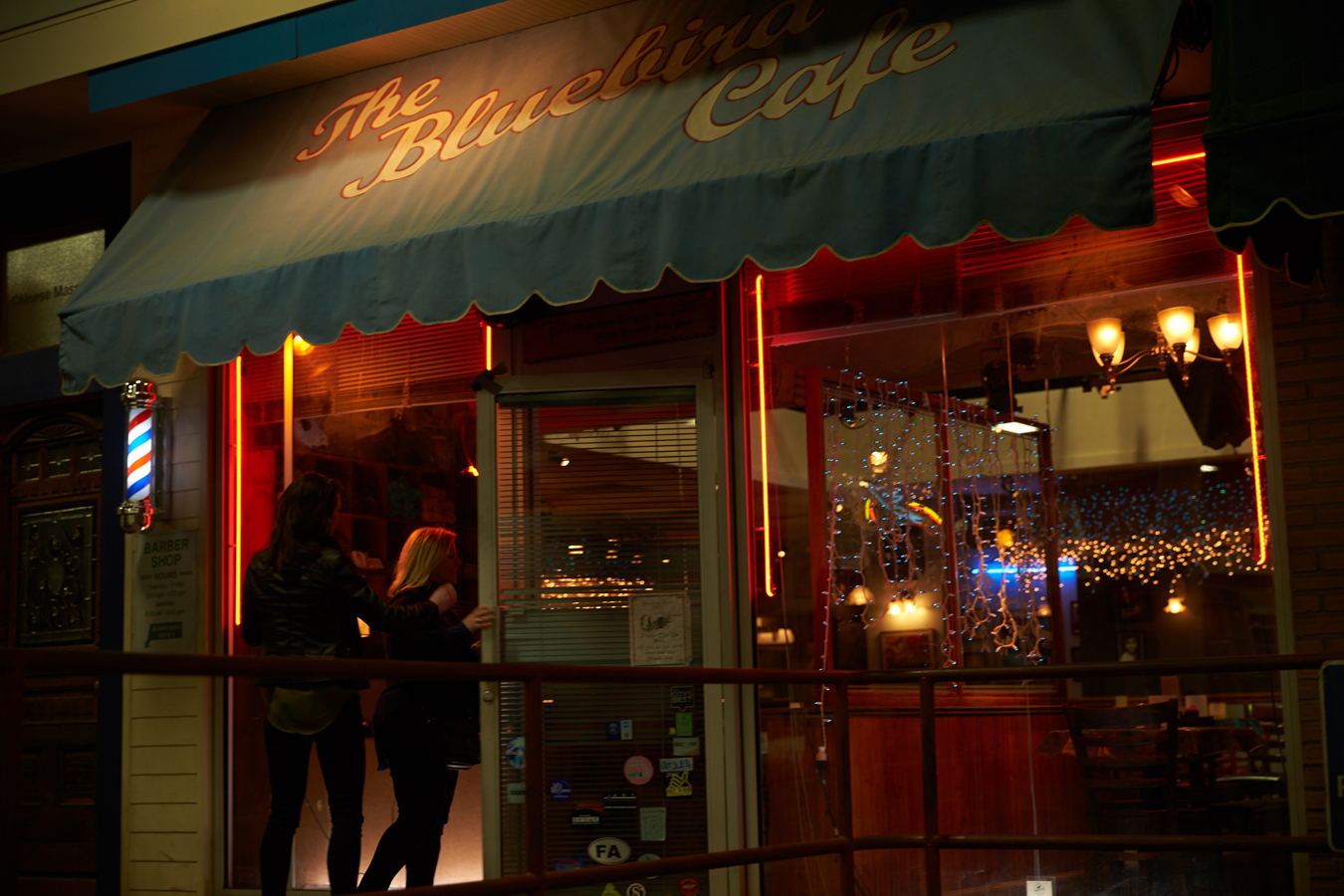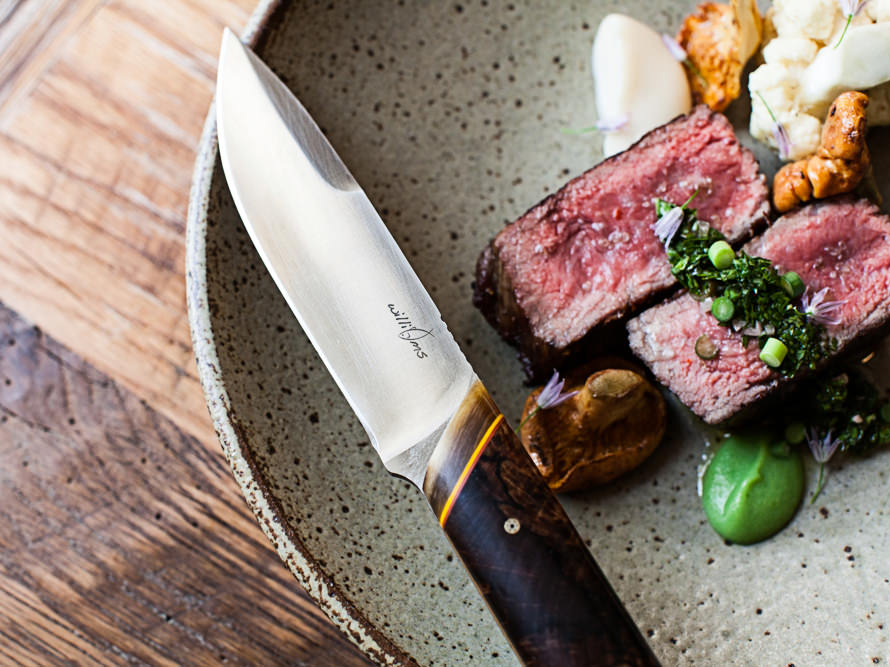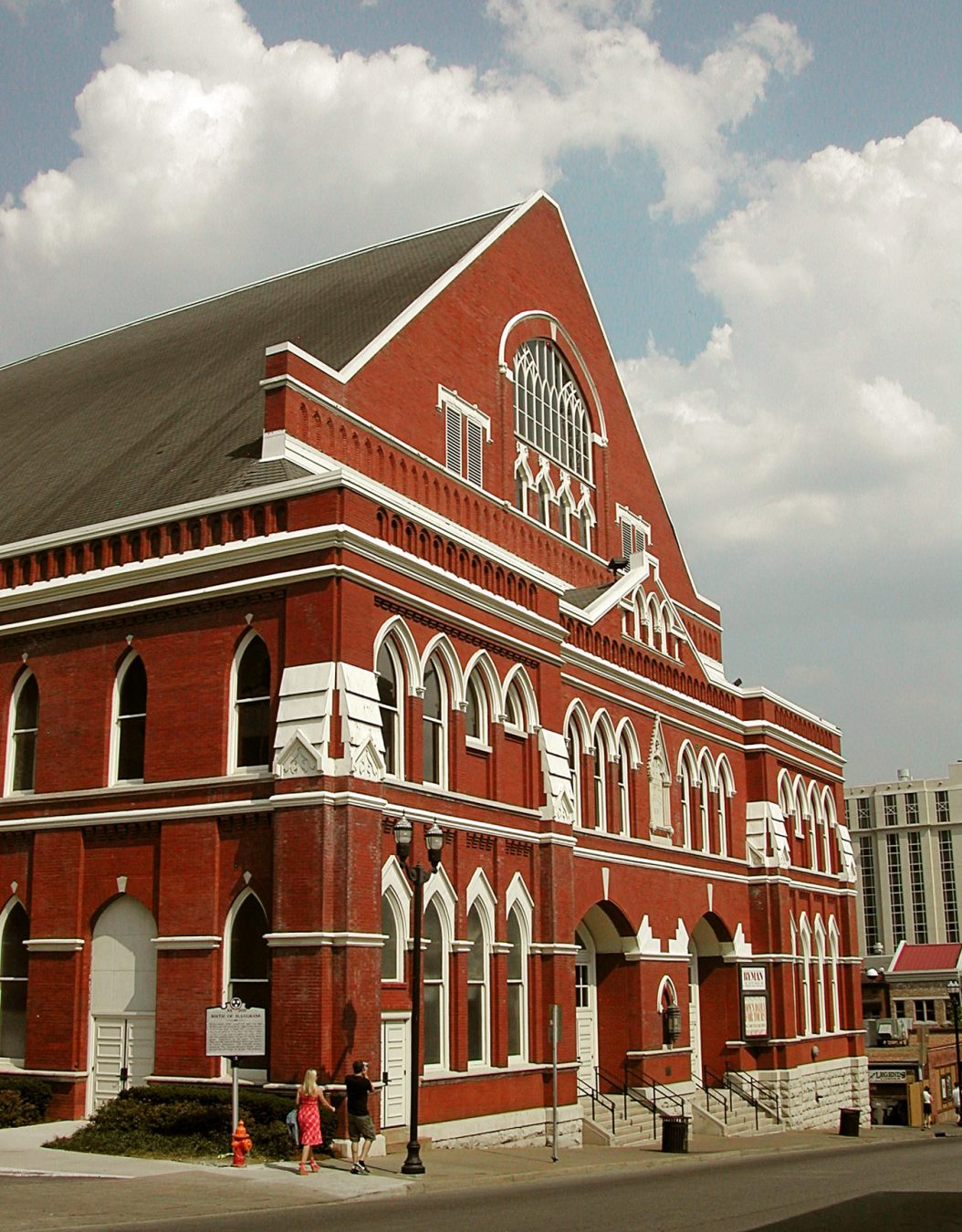The sign for The Basement music venue is only half lit-up, but that just adds to its charm. The entrance, if you can find it, is down an alleyway and around the back, through a gated lot. It is a literal basement, with no windows and nowhere to sit—tonight, the tiny place is crammed with people.
This is where the real Nashville lives, where the “next big thing” in music could be discovered; where Metallica recorded a live album in 2008, and where a blonde girl in a sparkly jumper and cowboy boots currently belts her heart out, clearly thankful to be on a stage in this so-called Music City. That is a large name to live up to, but a few days in Nashville will prove its worth.
Music history is everywhere. It is at the Ryman Auditorium, which this year celebrates its 125th anniversary—where the iconic Grand Ole Opry radio show recorded from 1943 to 1974, where Johnny Cash hosted his television show from 1969 to 1971. Where everyone from Harry Houdini to Teddy Roosevelt, and Aretha Franklin to Patsy Cline, have appeared. The Ryman was originally built as the Union Gospel Tabernacle church, commissioned by Thomas Green Ryman and finished in 1892. In 1901, a stage was built to host a New York Metropolitan Opera touring production, and it was renamed the Ryman Auditorium after Ryman’s death in 1904. Dolly Parton, Bob Dylan, Stevie Wonder. The Black Crowes. Willie Nelson. Indigo Girls. The echoes of their songs can be felt across the original pews that still fill the space.
Then there is The Bluebird Cafe, an intimate 90-seat “listening room” located on an unassuming strip mall outside the downtown core. It has become an historic songwriting and performance staple over the years (2017 marks 35, in fact), both as a place for heavyweights to play their favourites, and for up-and-comers to catch a big break. Garth Brooks and Taylor Swift were discovered here; Kenny Chesney and Keith Urban both passed the rigorous audition process and took to the stage in their early days. Toby Keith, Johnny Cash, Carole King, Bono; David Crosby, Donna Summer. They’ve all been inside these walls, either as performers or guests. “It’s really something to have Allen Shamblin, who wrote ‘I Can’t Make You Love Me,’ sing it here, and 90 people are crying,” says Erika Wollam Nichols, who runs The Bluebird. Thus, the only hard part is securing a ticket.
For sustenance, a must-visit is Husk, run by James Beard Award-winning chef Sean Brock. The menu only uses ingredients found in the South, and it changes daily, but may feature such plates as snapper with barbecued pumpkin, lemon balm, and apple vin blanc; pokeweed hominy cakes with chipped beef, pickled jalapeños, and pimento cheese; and grilled hon tsai tai with crispy pig skins, smoked peanut, and Husk amazake. The mix of classic South with modern city is reflected even in the building itself, which dates back to 1879 and once housed Nashville mayor Richard Houston Dudley. The soul of the heritage home remains, but cosmopolitan touches in the light fixtures and refurbished glass backside of the structure bring it into the 21st century with ease. The evening, too, can be spent here with ease.
Or there’s Martin’s Bar-B-Que Joint, the truest form of Tennessee barbecue: plastic trays, succulent meat, and sides including slaw and potato salad. What sets Martin’s apart, however, is that it smokes its pigs in-house—one of only four places in the state to do so. The brisket is juicy, the pulled pork is sublime; the house-made barbecue sauces are aplenty, try them all. Then head back to your hotel room, perhaps at Union Station, an Autograph Collection property located inside a restored 19th-century train station. The lobby features century-old stained glass and a 65-foot barrel-vaulted ceiling, while the rooms are more updated, with modern art and cowhide headboards. Like the rest of this great city, Union Station honours its past and recognizes its present. History is celebrated, but not overdone; stories are retold as new memories are made.


